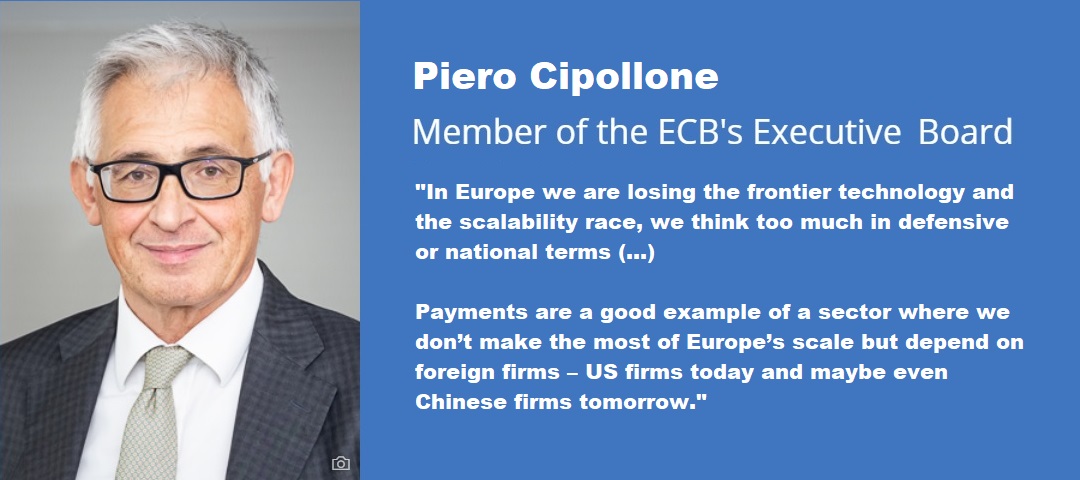
The euro accounts for about 20% of international reserves, while the euro area has a share of around 12% in world GDP. „This means that the euro is recognised as having a greater intrinsic value than the euro area’s share in the global economy. But we have to ensure that the euro continues to be used in international transactions and as a reserve currency.” said Piero Cipollone – member of the ECB’s Executive Board, in an interview conducted by Federico Fubini from Corriere della Sera.
Is this one of the reasons why the ECB is working on the digital euro?
The digital euro has an internal dimension and serves to reinforce the strategic autonomy of the euro area. Payments are a good example of a sector where we don’t make the most of Europe’s scale but depend on foreign firms – US firms today and maybe even Chinese firms tomorrow.
With digitalisation marginalising cash (today it is used in just over 40% of transactions), European citizens no longer have a means of payment that is universally accepted across the euro area. We are at the forefront in defending the freedom of anyone to use cash whenever they want to, within the limits of the laws of each country.
But faced with the expansion of online commerce, which today accounts for around 36% of transactions in value terms, European citizens need to be given the additional option of using a digital form of cash that is simple to use and that allows payments to be made throughout the euro area.
Otherwise, we will continue to be dependent on foreign payment service providers for any purchases made with cards and mobile phones. Today when we use a card, two times out of three we use the services of a non-European operator. This dependency is often reflected in higher fees borne by the merchant and ultimately by European consumers.
What are your thoughts on stablecoins?
In future a digital euro will allow us to safeguard the use of our currency – and therefore our independence – including with respect to stablecoins, which are currently mainly based on the US dollar. In addition, the digital euro will provide European firms with an infrastructure that enables them to offer not only traditional services, but also more innovative ones based on “conditional payments”, throughout the whole of the euro area. For example, European banks could develop solutions that offer automatic digital reimbursements to citizens if a company is late in providing a service.
The ability to compete more strongly on the European market thanks to the infrastructure provided by the digital euro and the associated innovations in products and services, would strengthen European firms and put them in a position to offer their services in the rest of the world too, as their peers from other jurisdictions do today. This would be another way to safeguard the role of the euro.
Banking 4.0 – „how was the experience for you”
„To be honest I think that Sinaia, your conference, is much better then Davos.”
Many more interesting quotes in the video below: